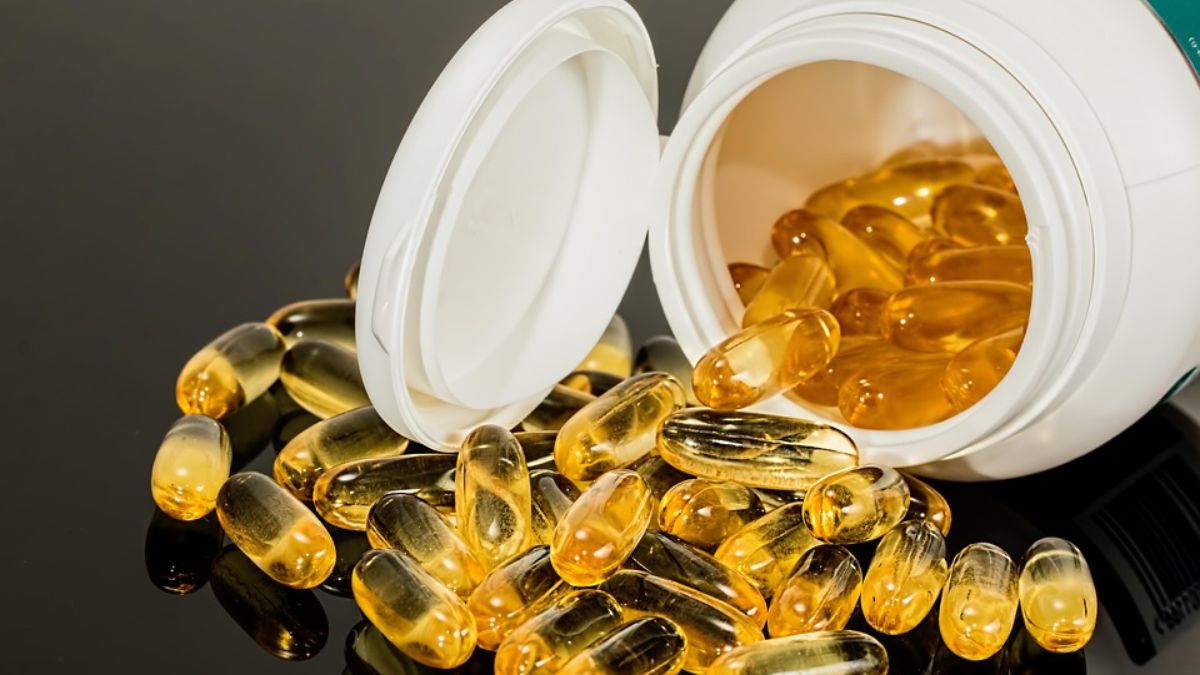Vitamin D is among the key nutrients needed in small doses for our body to function optimally. The ‘sunshine vitamin’ controls how much calcium our bodies absorb, the health of our immune system, and even our brain. While the right doses of Vitamin D can boost physical and mental health, unhealthy levels can lead to serious health trouble. Let’s understand in what circumstances people may suffer from Vitamin D toxicity and the serious side effects that are associated with too much Vitamin D.
The need for Vitamin D supplementation
Morning sunlight is one of the major sources of Vitamin D, and the nutrient is also found naturally in a number of food items like egg yolks, fatty fish, mushrooms, and tuna. One can also consume foods fortified with Vitamin D.
1 billion people have low vitamin D levels around the world, according to PubMed, and this number is only growing. The reasons can range from sedentary lifestyles to poor eating habits. Insufficient Vitamin D intake can affect calcium levels in the body, which is an important mineral for bone health. It can also affect our moods, productivity and other aspects of brain health. People with low levels of Vitamin D are also more susceptible to catching seasonal infections as their immunity is low.
As the awareness around the importance of Vitamin D is growing, many people may be tempted to buy over-the-counter supplements. However, it’s very important to not overdose on Vitamin D as it can have a series of unpleasant side effects. Some of them can turn into serious health issues.
The recommended dose of Vitamin D
It is recommended not to exceed the Tolerable Upper Intake Level (UL) – 4,000 IU (100 mcg) per day. Excessive consumption of vitamin D (10,000 IU) supplements every day can cause Vitamin D toxicity, which can lead to abnormally high levels of calcium in the blood.
While normally people wouldn’t consume such high levels of Vitamin D, sometimes inappropriate supplement dosing and prescription error can cause such cases.
What is Vitamin D toxicity?
 Hypercalcemia can damage kidneys, bones and heart. (Image source: Canva)
Hypercalcemia can damage kidneys, bones and heart. (Image source: Canva)
“Vitamin D toxicity, which is also called hypervitaminosis D, occurs when you have too much Vitamin D in the body. In most cases, this is due to taking too many supplements rather than through diet or sun exposure. High amounts of Vitamin D make your body absorb too much calcium from the diet which can lead to hypercalcemia – a dangerous surplus of calcium in the blood. Having hypercalcemia can damage your kidneys, bones, and heart. Natural food and sunlight cause relatively little toxicity; most toxicity occurs from misuse of high-dose supplements,” says Dr Akhilesh Yadav, Director-Orthopedics & Joint Replacement, Max Super Speciality Hospital Vaishali.
What are the symptoms of excessive Vitamin D
The side effects of having too much Vitamin D can range from mild to severe.
“The short-term symptoms seen in patients are nausea, vomiting, frequent urination, and even weakness. Kidney damage, calcium deposits in organs, and heart problems,” says Dietitian Nivya Vikal, Consultant – Nutrition & Dietetics, Motherhood Hospitals, Greater Noida.
Sometimes, the excess Vitamin D levels can lead to more serious health issues like kidney stones, bone pain, calcium deposits within soft tissues and permanent damage to kidney or heart, says Dr Yadav.
Too much Vitamin D can in fact weaken bones instead of strengthening them.
Common mistake people make while taking Vitamin D
“A common mistake is taking high-dose Vitamin D supplements without a prescription or medical adjustments and blood tests. Some individuals believe that more Vitamin D equals better health. That is not necessarily true. Using Vitamin D with calcium, and without measuring the levels increases the risk of hypercalcemia. Not considering natural sources and solely relying on pills to replace sunlight as a source of Vitamin D is another factor behind the imbalance,” explains Dr Yadav.
Best Vitamin D-rich breakfast foods
While the best natural source of Vitamin D is sunlight, there are some breakfast foods that can assist with Vitamin D intake.
“Breakfast foods that are fortified with Vitamin D, such as fortified orange juice, fortified milk, and fortified cereals are simple choices. Egg yolks and mushrooms that have been exposed to sunlight also represent good natural sources. Egg yolks and mushrooms that have been exposed to sunshine are also good natural sources. Oily fish like salmon and mackerel that are sometimes part of breakfast diets are also excellent sources of vitamin D for non-vegetarians. Regularly taking these foods will keep adequate Vitamin D levels in the body without supplementing too much Vitamin D,” says Dr Yadav.

